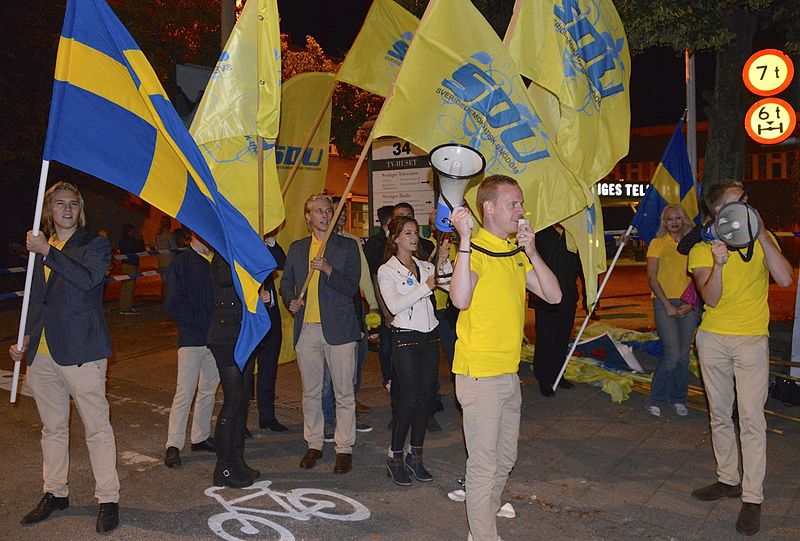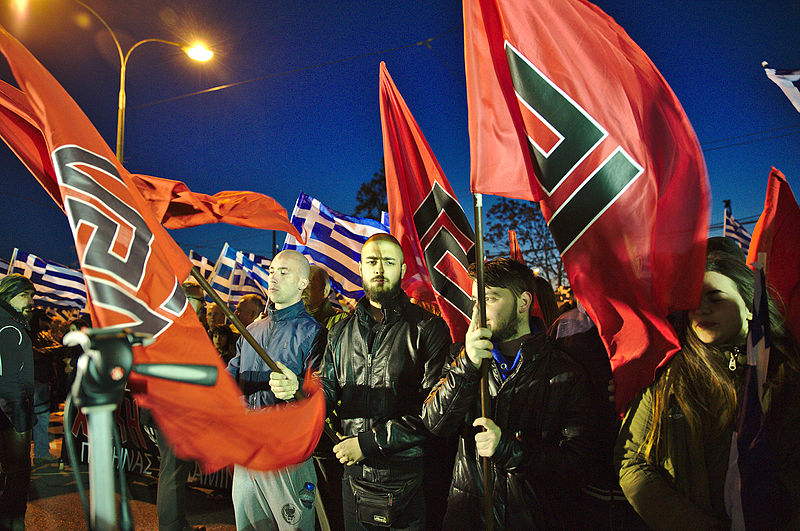Pax et Bellum | Analysis, Europe, International Politics, Shawn Davies, Suna Voss |
Identity politics is in the news. While identity might be a construct, as the constructivist argument goes, attempts to transcend one identity generally lead into the construction of another. What does this mean for politics and society? The ethnicities of Gujarati and Marathi are united as Indians. This came at the price of the revival of a Hindu-Muslim conflict. The Europeans are in the midst of a transnational identity construction, the formation of a common European identity, meant to bridge the previously so devastating Franco-German conflict. While some are embracing their new European identity, others struggle for the revival of the nation-state project, as evident from Brexit. Movements mobilised around ethnic, racial or religious identity labels, as the basis for political claims, are growing: examples abound, from revived nationalist movements in Europe, to the success of Donald Trump in mobilising white Americans against international influence and other identity groups.
These few cases show that identities are often at odds, and often complex. They raise questions that require answering. How is identity actually formed? What is causing this recent rise of identity politics? And what is the role of multiple identities?
Let us first turn to identity formation itself. Tajfel and Turner (1979) suggest that cognitively, individuals are “hard-wired” to categorise the world they live in, in order to make sense of it. This includes the social world. Tajfel and Turner (1979) further propose that social identification then follows cognitively from categorisation. Individuals, according to the authors, have no choice but to identify with one group or another: By identifying with a social group, individuals are provided with a measure of self-reference, enabling them to define their place in the social context. When this identification is strong, as raised by Roccas and Elster (2012), depersonalisation follows: the lines between “We” and “I” become blurred. Disadvantages which the group is perceived to incur become disadvantages of the individual group member. For example, a decline in national economic activity, and a rise in unemployment, becomes a reason for discontent not only for the people who are losing their job. Citizens who identify with their state may also feel that they are suffering, even if they are seemingly unaffected by the crisis. On an important note, self-reference also means that people compare their in-group to other groups, which are categorised as out-groups. Generally, we can expect that individuals do not want their in-group to be losing at whatever game is perceived to be played.
We can link this social psychological conceptualisation to observations of identity politics. For instance, Mary Kaldor explained the identity politics of the war in Bosnia-Herzegovina (1992-95) as a function of globalisation and its varying impacts on different groups: “[The politics of particularist identities have] to be explained in the context of a growing cultural dissonance between those who participate in transnational networks… and those who are excluded from global processes and are tied to localities, even though their lives may be profoundly shaped by those same processes” (Kaldor, 2012: 71-72).
The voting patterns during the recent Brexit vote demonstrate the same dividing lines that Kaldor witnessed in Bosnia. The division has, to a large extent, been between the winners and losers during the last decades of globalisation. The Remain side was supported disproportionately by people in the large cities, mostly young and highly educated people, who are more likely to participate in ‘transnational networks’. The leave side was instead based in rural areas, mostly less educated, working-class and older people, whom are more likely to be excluded from global processes and tied to their localities (Peter, 2016). In the UK, the people who were excluded from transnational networks blamed the woes of their in-group on a broadly defined out-group, identified (by right-wing politicians) as the European community and immigrants. The majority in the United Kingdom voted to leave the EU, in search of “UK independence”, only months after the Scottish independence referendum narrowly ended with a stay. Here it gets more complicated, with Scottish voters during the Brexit referendum voting overwhelmingly to stay in the EU (BBC, 2016), indicating that for many there, they want both a narrower Scottish identity, and a broader European one.

This context of globalisation has entailed a process in which the national level has declined as a relevant decision-maker – compared to the strengthening of provincial and global decision-making. The effect has been the perception that national identities are under threat. This has led to a new wave of identity politics around the world, as people mobilise around their in-group to counter the decline of the nation state. The increasingly globalised decision-making has another side: the increased fragmentation and regionalisation of governance within states. For while the world is as internationalised as ever, in many areas, provincial entities, rather than national, have become increasingly powerful. Provinces within the EU can now cooperate across national borders, without using national governments as intermediate, through programmes such as the European Territorial Cooperation.
Globalisation has also weakened national levels of economic organisation. Territorially based industrial production has declined in economic importance, relative to the service, know-how and finance industries (Kaldor, 2012:74). Richer countries are increasingly specialising in economic activities that require high levels of education, while industrial production is moved to cheaper areas. This economic shift benefits the well-educated, while industrial workers with low levels of education are disadvantaged. Many of them perceive the political classes as being powerless, or unwilling, to hinder this shift. Politicians are now forced to react to economic and environmental crises whose origins are far from said groups’ area of control.
Former Greek prime minister, George Papandreou (2013) thinks democracy is hampered by being local, while the problems democracies now face are global. He describes the negotiations amongst EU leaders, to help Greece when the economic crisis spread there in April 2010, as being forced to conclude prematurely, due to a need to placate the stock markets, which were to open in Japan in ten minutes (Papandreou, 2013). The impotence of the state has led to the delegitimization of the political classes, and to widespread disillusionment with politics (Kaldor, 2012:81).
This disillusionment can be linked to Rotter’s (1954) locus of control, an influential concept in personality psychology. According to Rotter (1954), individuals may either believe that they have a large influence on things that happen in their lives, or they believe that they have little influence on things that happen to them. Respectively, they perceive having an internal locus of control, or an external one. Amongst others, people with an external locus of control are more likely to suffer from depression, and more likely to experience higher stress levels (Benassi et al., 1988).

While this concept is an individual concept, we can shift it to the group level as discussed above. Considering these observations in light of the locus of control framework, we can suggest that people may be less likely to identify with a group perceiving that the issues it is confronted with are outside its area of control. If their in-group has little impact on issues confronting it, the individual may supposedly incorporate this, while at the same time they would prefer feeling more powerful about their own situation. Therefore, individuals would be more likely to side with a group perceived as having an internal locus of control. Nationalist groups blame politicians for being unable, or unwilling, to protect their citizens from negative effects of globalisation. Some members of these groups are politicians themselves, however they make it clear that they rally “against the established parties”. They are different, is what they claim. This said, the group people identify with needs to be a group the individual can “rightfully” claim to be a part of, it needs to be a relevant group. National, regional or ethnic identities are convenient groups in these respects, as belonging is based upon descent.
This analysis points towards a psychological explanation as to why nationalist or separatist identities are on the rise, especially where globalisation is failing people. National governments seem to be losing control over many issues their citizens are confronted with. Identifying more strongly with a nationalist group can increase people’s perception of having an impact, of being able to regain influence over their own lives, regions or countries.
As discussed above, increased cooperation beyond national borders, especially in Europe, has given rise to new, transcending identities. An example of this is Alsace, a previously German-speaking region that has resisted assimilation into France for hundreds of years. Tomi Ungerer, a veteran campaigner for Alsatian linguistic rights, thinks the EU has alleviated some particularist tensions within France: “We don’t have to worry any more, are we French, are we German? We are European. Alsatians are true Europeans because we have discovered a new identity” (Ungerer in MacGregor, 2014:75-76).
At the same time, as becoming clear from this quote, Alsatians still maintain their regional identity. This exemplifies the multiple identities every individual has in themselves. One may be European, as well as Alsatian, a woman, a young person, and so on. Awareness of these multiple, often overlapping identities actually decreases the risk of conflict (Roccas and Elster, 2012). In the light of nationalism and identity politics on the rise, while people are feeling that they are losing out in the game of globalisation, it therefore becomes important to unite across different identities. We should emphasise our many identities that we share, rather than focusing on one and excluding all others.
Suna J. Voss and Shawn Davies
*Suna and Shawn are students at the Master Programme in Peace and Conflict Studies at Uppsala University.
The blog is run independently of the Department of Peace and Conflict Research in Uppsala. The Pax et Bellum Editorial Board oversees and approves the publication of all posts, but the content reflects the authors’ own perspectives and opinions.
REFERENCES
- BBC. 2016. “EU Referendum: The Result in Maps and Charts.” BBC News, June 24, sec. EU Referendum. http://www.bbc.com/news/uk-politics-36616028.
- Benassi, V. A.; Sweeney, P. D.; Dufour, C. L. 1988. “Is there a relation between locus of control orientation and depression?”. Journal of Abnormal Psychology. 97 (3): 357–367.
- Kaldor, Mary. 2013. New and old wars: Organised violence in a global era. John Wiley & Sons, 2013.
- MacGregor, N. 2014. Germany: Memories of a Nation. Penguin UK.
- Papandreou, George. 2013. Imagine a European Democracy without Borders. TEDGlobal. http://www.ted.com/talks/george_papandreou_imagine_a_european_democracy_without_borders.
- Peter, Tom A. 2016. “‘Brexit’ Vote: A Clash over Britain’s Identity.” Christian Science Monitor, June 10. http://www.csmonitor.com/World/Europe/2016/0610/Brexit-vote-a-clash-over-Britain-s-identity.
- Roccas, Sonia & Elster, Andrey. 2012. ‘Group Identities’ In: Tropp, L., The Oxford handbook of intergroup conflict. Oxford University Press.
- Rotter, Julian B. (1966). “Generalized expectancies for internal versus external control of reinforcement”. Psychological Monographs: General & Applied. 80 (1): 1–28.

